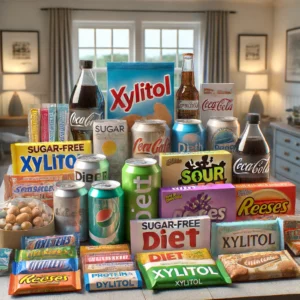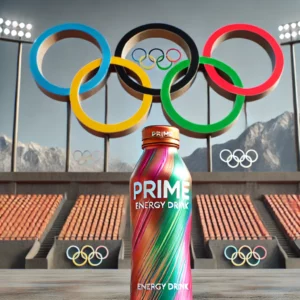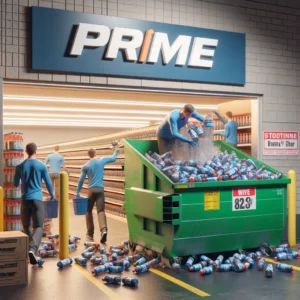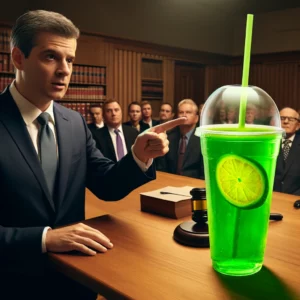Understanding the FDA’s THC Edibles Warning
The U.S. Food and Drug Administration (FDA) has issued a significant warning regarding THC edibles that closely resemble children’s snacks. This alert aims to inform the public about these products’ potential dangers, particularly to young children who might mistake them for regular treats. This article explores the details of the FDA’s warning, the associated risks, and the necessary safety measures.
5 Key Points
•The FDA warns that some THC edibles look like kids’ snacks.
•These edibles pose severe risks if ingested by children.
•Packaging is often misleading and attractive to kids.
•Parents and caregivers must be vigilant about these products.
•Regulatory measures are being considered to enhance safety.
Details of the FDA’s Warning
The FDA’s recent warning highlights the growing concern over THC edibles that are packaged to look like familiar children’s snacks. Products such as gummies, cookies, and candies infused with Delta-8 THC are often marketed in brightly colored packages that mimic popular kid-friendly brands. The resemblance can easily lead to accidental ingestion by children, posing significant health risks, including severe intoxication, respiratory issues, and even hospitalization. The FDA has received numerous reports of children consuming these edibles, often resulting in emergency room visits. The agency’s warning is part of a broader effort to educate the public and prevent such incidents.
Health Risks and Safety Concerns
THC edibles can have a much more substantial and prolonged effect compared to smoking cannabis, especially in children. The consumption of these edibles by young children can result in severe and potentially life-threatening symptoms such as extreme drowsiness, uncoordinated movements, increased heart rate, and difficulty breathing. These risks are compounded by the fact that children may consume large amounts, not realizing they contain THC. Ingesting large quantities can lead to overdose, requiring immediate medical intervention. The psychological effects can also be profound, with children experiencing hallucinations, anxiety, and paranoia, which can have lasting impacts on their mental health.
Misleading Packaging and Marketing
One of the critical issues addressed by the FDA is the misleading packaging and marketing of THC edibles. These products often use branding and designs that are strikingly similar to non-cannabis snacks, which can deceive both children and adults. The use of cartoon characters, bright colors, and familiar logos is particularly problematic, as it can attract the attention of young children and lead to dangerous situations. This deceptive marketing not only endangers children but also undermines the efforts to regulate cannabis products responsibly. The FDA is pushing for stricter guidelines on packaging to ensure that these products are distinguishable from non-cannabis items.
Parental Vigilance and Preventative Measures
Parents and caregivers must exercise extreme caution when storing and using THC edibles. It is essential to keep these products out of reach of children, ideally in a locked cabinet or container. Additionally, educating children about the dangers of consuming unknown substances can help prevent accidental ingestion. Parents should also be aware of the signs of THC ingestion and seek immediate medical attention if they suspect their child has consumed these products. Regularly checking labels and packaging for clear indications of THC content can also help parents stay informed about the potential risks in their homes. Community education programs can further support families by providing information on the safe storage and usage of cannabis products.
Regulatory Responses and Future Measures
In response to these growing concerns, the FDA and other regulatory bodies are considering stricter regulations on the packaging and marketing of THC edibles. Proposed measures include mandatory child-resistant packaging, more transparent labeling, and restrictions on branding that could appeal to children. These steps aim to reduce accidental ingestions and enhance overall consumer safety. The FDA is also working with manufacturers to develop standardized packaging that differentiates THC edibles from regular snacks. Public health campaigns are being launched to raise awareness about the dangers of these products and promote safe consumption practices. Future regulations may also include penalties for companies that fail to comply with these safety standards.
FAQ
Q: Do you qualify for a personal injury lawsuit?
A: To see if you qualify, click here.
Q: What are THC edibles?
A: THC edibles are food products infused with tetrahydrocannabinol (THC), the psychoactive component of cannabis. They come in various forms, such as gummies, cookies, and candies.
Q: Why is the FDA issuing a warning about these edibles?
A: The FDA is warning about THC edibles that resemble children’s snacks because they pose a significant risk of accidental ingestion by children, leading to severe health issues.
Q: What health risks do THC edibles pose to children?
A: Ingesting THC edibles can cause extreme drowsiness, uncoordinated movements, increased heart rate, difficulty breathing, and even hospitalization in children.
Q: How can parents prevent their children from ingesting THC edibles?
A: Parents should store THC edibles in a locked cabinet or container out of reach of children and educate them about the dangers of consuming unknown substances.
Q: What regulatory measures are being considered to address this issue?
A: Regulatory measures include mandatory child-resistant packaging, more transparent labeling, and restrictions on marketing that could appeal to children.
Citations:
People. (2024, July 25). FDA warns Delta-8 THC edibles look like kids’ snacks. Retrieved from https://people.com/fda-warns-delta-8-thc-edibles-look-like-kids-snacks-8679581







